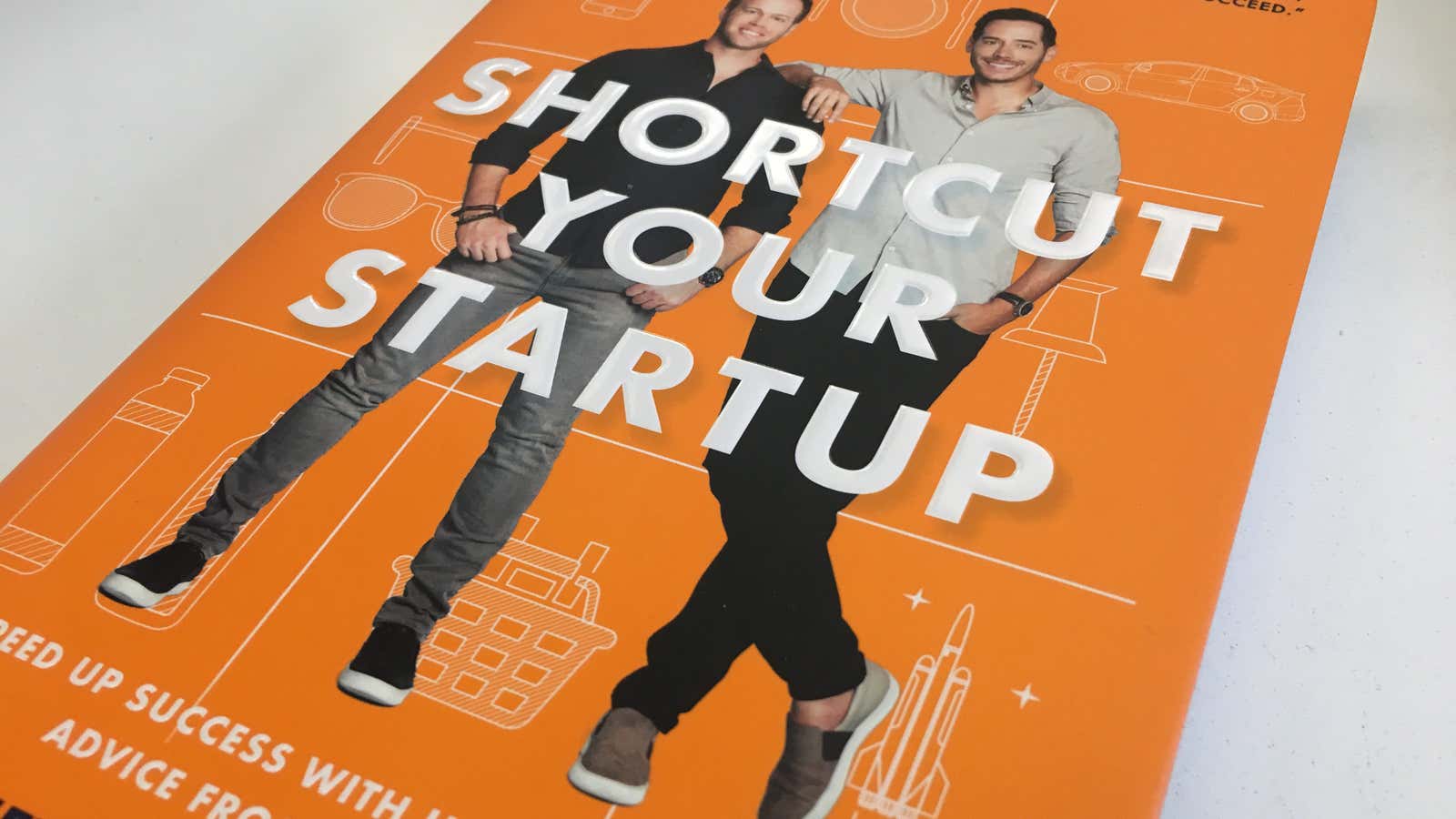Startups often get in trouble for trying to cut corners on their way to success. Look at Uber, Hubble, Zenefits, and Theranos, to name a few. That success justifies unconventional tactics and demands breakneck growth is an idea that’s pervasive in Silicon Valley, and is increasingly cemented in business books, like one that arrived on my desk: Shortcut Your Startup: Speed Up Success with Unconventional Advice from the Trenches.
Shortcut Your Startup‘s bright orange cover features its authors, brothers and former Goldman Sachs investment bankers Courtney and Carter Reum. Its thesis is on the first page of the introduction: “Today, the companies that win are those that move more quickly and flexibly than their competitors. This new environment requires new strategies, new mind-sets, and new tactics to shorten timelines, stand out, and win.”
A certain tone tends to define the self-help business book—direct, oversimplified, self-aggrandizing—and Shortcut Your Startup nails it. The Reums start by discussing the “just stupid enough” risk they took to leave Goldman and start their own company (VEEV, an açaí vodka alternative). They encourage budding entrepreneurs to “get into the trenches,” including for team-building: “Cliché as it might sound, take your team to a Spartan Race or a Tough Mudder. These fun and increasingly popular obstacle course races are great entrepreneurial training grounds.”
They cite a lot of men who inspired them and who they think did things well and, 74 pages in, also introduce their idea of a successful woman. It’s Jessica Alba, celebrity founder of The Honest Company, followed a few pages later by a nod to Tyra Banks.
The actual business advice includes: raise money and grow fast (“if you don’t show fast growth, you’re not going to capture the attention, dollars, and imagination of investors”), focus on “unfair advantages,” and “don’t expect your investors to read everything you send.” When fundraising, they remind founders to, “ABC: Always Be Closing,” the phrase made famous by Alec Baldwin in the film adaptation of the David Mamet play, Glengarry Glen Ross.
I don’t recommend you read this book. By simply scanning Shortcut Your Startup, or any number of other startup how-to guides, it’s easy to see where some of Silicon Valley’s most toxic beliefs come from, and how they’re perpetuated. Some people who will read this book will absorb not just its advice but also its implicit lessons: that startup culture is about taking the guys to Tough Mudders, that success is determined by finding and exploiting “unfair” advantages, that, so long as the company is growing fast, investors don’t need to know what actually going on.
What could go wrong?
This post first appeared in Oversharing, a newsletter about the sharing economy. Sign up here.
